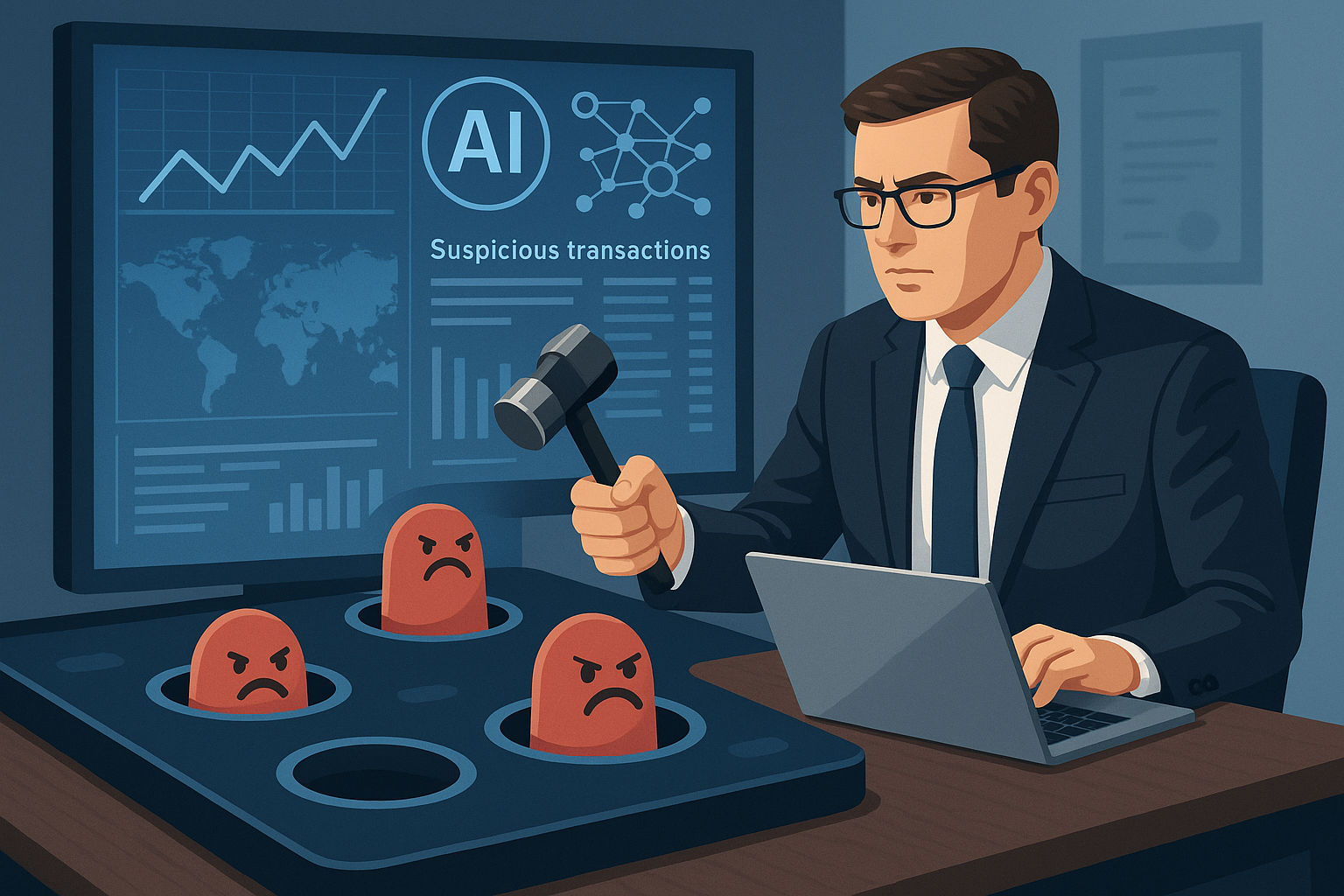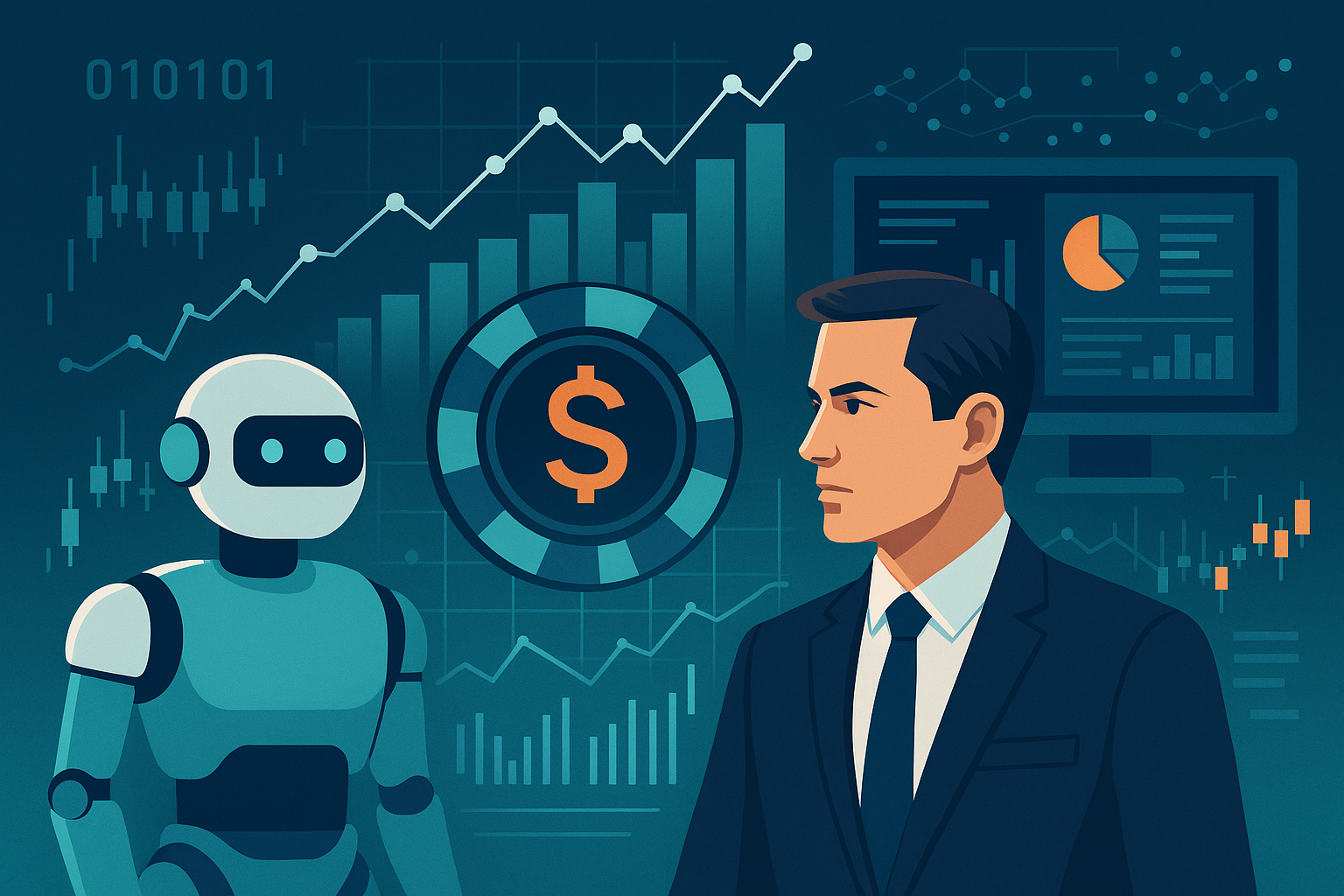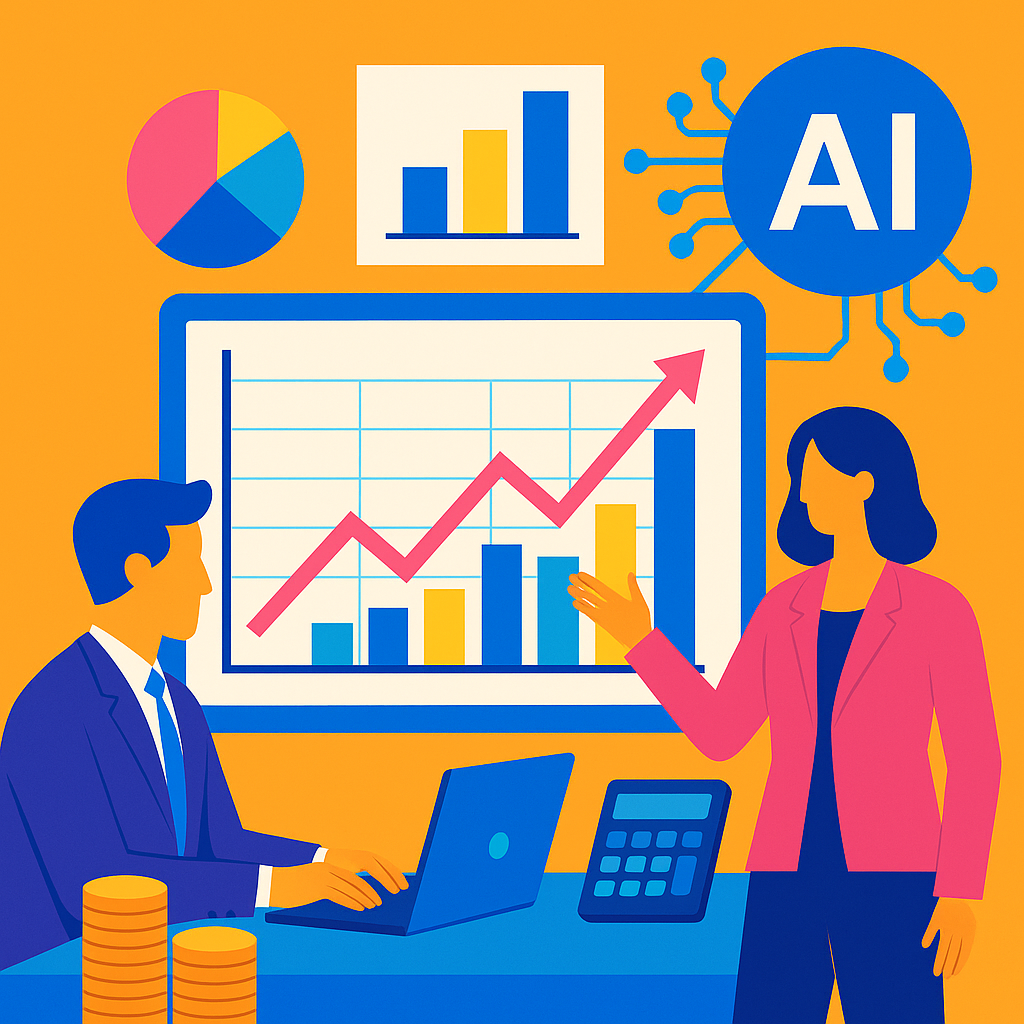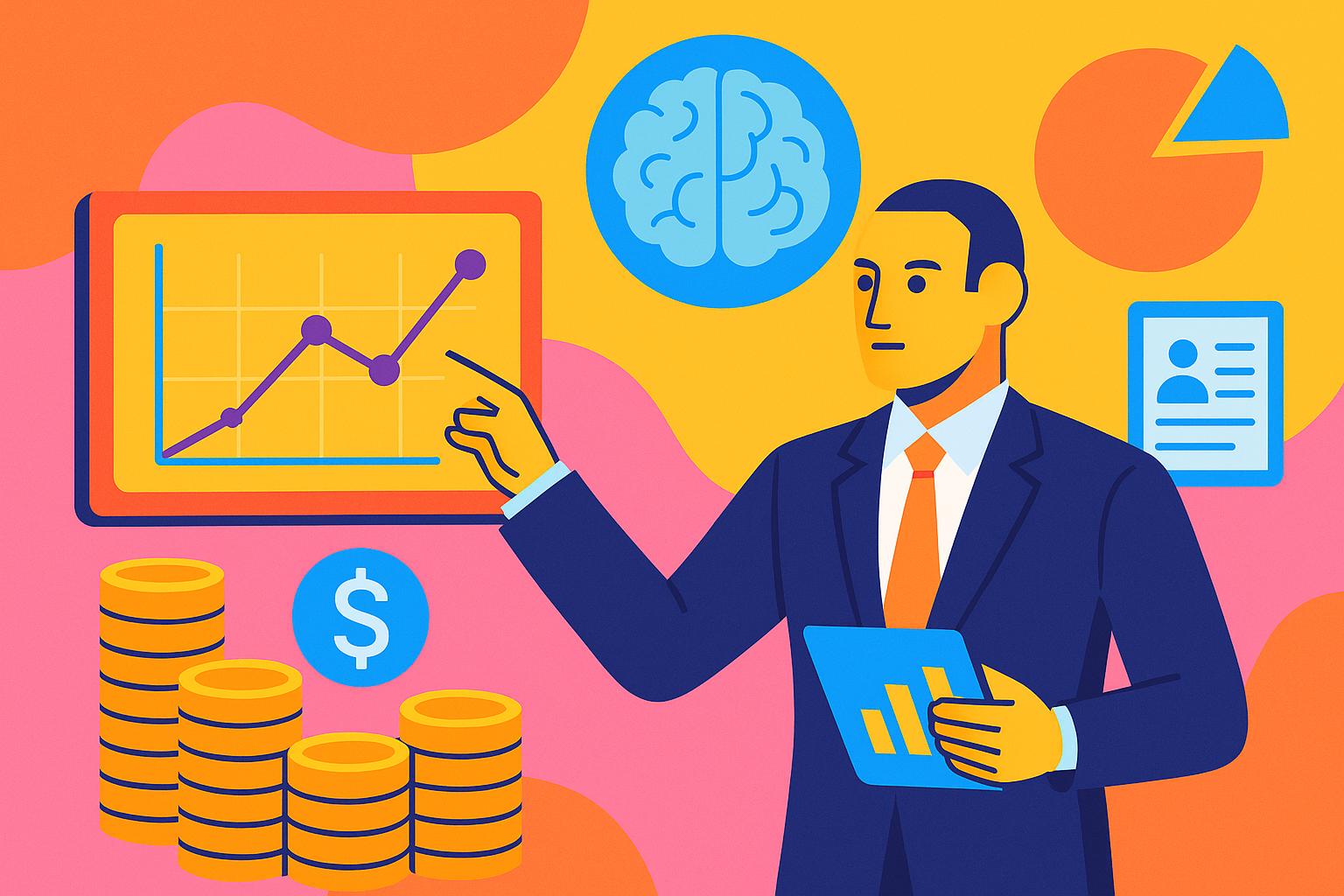Take a look. Take a listen.
Our latest blogs:
OpenAI Dev Day: The Platform Shift That Changes Everything
OpenAI's latest developer announcements aren't just product updates—they're the starting gun for a platform race that will determine AI winners and losers. ChatGPT is transforming from a tool into an ecosystem where third-party apps live, AI development requires zero coding experience, and enterprise deployment costs just dropped 90%. If you're not rethinking your AI strategy after these announcements, your competitors already have a six-month head start.
Claude + Excel: The Productivity Game-Changer Your Team Actually Needs
Anthropic just rolled out direct Excel integration with Claude, and the early results are genuinely impressive. Instead of wrestling with formulas or waiting days for analysis, teams are literally talking to their spreadsheets and getting board-ready insights in minutes. While everyone's been debating whether AI will replace analysts, the smart money is quietly using tools like this to make decisions faster without cutting corners on quality.
Prompt Testing is the Dress Rehearsal Your Ads Need
Should the prompt be, "Write me a snappy headline for a sneaker ad" or "Give me five fun headlines that will appeal to Gen Z sneaker fans"? You won't know unless you try both out and see which one gives you the results you need for your campaign. And this is where prompt testing comes in.
Think of prompt testing like a dress rehearsal for your AI. Before you send it out to perform in front of clients, you want to make sure the script works. In simple terms, prompt testing is the process of experimenting with different ways of asking AI to do something and then measuring which approach delivers the clearest, most useful, or most creative response.
Garbage Cans, Bitter Lessons, and Your AI Strategy
On the outside, most companies present as pristine and organized. But this couldn't be further from the truth. Classic org theory calls this the Garbage Can reality: lots of unwritten rules and ad‑hoc workarounds. The old way to deploy AI was to document and standardize processes first, then automate. A newer path, shaped by the Bitter Lesson from AI research, is to define excellent outputs, assemble examples, and train agents to hit the target without hard‑coding the how. You still need governance, but you may not need to untangle every spaghetti workflow before you see value.
Doom Prompting: AI’s Version of Doomscrolling
Remember doomscrolling? That late-night spiral where you promised yourself just one more swipe on Twitter, only to wake up at 2 a.m. wondering why you know so much about a stranger’s sourdough starter? Well, AI has given us a sequel: doom prompting.
AI Puts the Smart in Sustainable Investing
ESG investing is basically your company’s way of trying to do well while doing good. ESG investing helps keep profits healthy without wrecking the planet or ignoring people. Instead of just staring at spreadsheets, ESG leaders are juggling sustainability reports, carbon targets, and endless debates about what really counts as “material.” And yes, half the job is proving you care without looking like you’re showing off.
Meet the Personality Control Panel Inside Your AI
Imagine if you could tweak your colleague Bob’s personality at will. A little less arrogant here, a bit more focused there, maybe dial down the crude humor just a tad. Welcome to the world of persona vectors which are AI's version of personality tuning knobs: invisible sliders under the hood that adjust how charming, cautious, or catastrophically unhinged your LLM might be on any given day.
How AI is Putting Fraudsters on Notice
“Whac-A-Mole” is typically a game played by children in an arcade. But individuals in fraud detection play a daily game of Whac-A-Mole: hammer down one threat of fraud, another fraud threat pops up almost instantly. Thankfully, artificial intelligence is the hammer making life a whole lot easier for executives tasked with keeping their company's finances secure. At its core, fraud detection involves identifying deceptive activities intended to provide a dishonest gain, often through theft or false representation.
OpenAI Releases Open-Source Models & Opens The AI Business Playing Field
OpenAI's latest open-source release fundamentally shifts who controls enterprise AI. For the first time, mid-level executives and business leaders can deploy state-of-the-art AI models tailored to their industries—without vendor lock-in, IT gatekeeping, or safety compromises. This isn't just another AI tool; it's a strategic inflection point that moves AI decisions from the server room to the boardroom. While competitors navigate lengthy procurement processes, early movers can build proprietary AI-amplified processes that create lasting competitive advantages. The AI monopoly just ended. The question is: Will your organization seize this moment?
How Algorithms Learned to Count......and Invest
If investing were a poker game, AI-driven quantitative investing is like having a robotic card-counter by your side, whispering winning probabilities into your ear. But, unlike your local casino pit boss, this behavior is not frowned upon. AI-driven quantitative investing, or "Quant AI," uses advanced algorithms and artificial intelligence to analyze massive financial datasets, predict market trends, and execute quick trades. Within the stock and commodity trading field, Quant AI has shifted from a novelty to an essential tool in every investor's digital arsenal. Let's dive into how executives are steering these AI-robot investors through the financial casino, placing calculated bets and sidestepping dicey gambles with mechanical precision.
AI Will Take Judge Dredd's Place in the Very Near Legal Future
Imagine being able to reference verbatim any legal case in U.S. history. Being able to cite precedent across 200+ year of case law, across every state would be a phenomenal feat for any human lawyer. That’s AI for lawyers in a nutshell. According to a recent study by a team of legal scholars and industry experts specializing in AI-driven transformations within the legal profession, generative AI is poised to significantly transform the legal profession, with new technologies such as Retrieval-Augmented Generation (RAG) and AI reasoning models offering exciting potential.
Behind Every Great AI is an Even Greater Power Bill
Most people just hit the enter button and send their query off to the LLM without even thinking about power. And by power, I mean electricity. AI is rapidly becoming a part of everyday life, deeply integrated into our smartphones, smart assistants, business analytics, and even autonomous driving. The growth in AI adoption is explosive, but behind the seamless interactions with tools like ChatGPT, Google Gemini, and Anthropic Claude, there lies a hidden reality. These technologies consume significant amounts of power beyond other civilian-used technology that has been on the market.
Why Claude's Sub-Agent Launch Matters for Forward-Thinking Executives
Claude Code's new Sub-Agent feature is revolutionizing how organizations approach AI-assisted workflows, enabling businesses to deploy specialized AI mini-agents that dramatically boost productivity and operational excellence. For executives navigating digital transformation, understanding this strategic shift could determine competitive advantage in the AI-driven marketplace.
Trump's AI Action Plan and Its Business Implications
Deregulation, massive infrastructure spending, and new federal contract requirements will reshape competitive dynamics across industries
The White House just released their AI strategy, and it's going to completely reshape how companies operate in this space. We break down which sectors will benefit most from the new deregulation push, what the massive infrastructure investments actually mean for your operations, and how the "political neutrality" requirements could impact your government contracts. This isn't just another policy announcement. It's a fundamental shift that will determine competitive positioning in AI for years to come.
OpenAI's Agents Are Building Tomorrow's Workforce
Imagine telling an AI to "prepare a competitive analysis, draft talking points, and create a board presentation" then walking away while it handles the entire workflow autonomously. OpenAI's new agents don't just research and write, they click, navigate websites, and integrate with your business systems to execute complex projects end-to-end. The intern just became your most capable associate.
Keeping Algorithms on the Straight and Narrow: AI Ethics & Regulations in Finance
While it's not the most exciting topic (depending on whom you ask), but utilizing AI in the Finance sector needs to come with a heavy dose of ethics and regulation. Think of Ethics & Regulation of AI in Finance as your firm's in-house referee and moral compass combined into one. Ethical AI ensures your algorithms remain transparent, unbiased, and accountable. Meanwhile, regulatory compliance sets clear guidelines and boundaries to keep everyone playing by the same rules. An executive in this role spends their days reviewing AI-driven projects (for the non-finance readers think credit decisions or trading models), updating governance frameworks, and generally staying one step ahead of regulatory changes. Successfully handling these responsibilities sets the stage for real scenarios where ethics and regulation become critical, as illustrated in the following examples.
Echo Chambers & 8-Fingered People: Your Survival Guide to the AI Slop Era
The term "AI slop" might sound like something you'd avoid at a questionable cafeteria, but it actually describes the wave of low-quality, mass-produced content generated by artificial intelligence. Think of formulaic blog posts, stock images of people with 8 fingers, and videos literally starring AI-based avatars. If you picture the internet as a garden, AI slop would be the stink bug that's giving the garden a funky smell.
How AI is Transforming Corporate Financial Planning & Forecasting Without the Excel Headaches
Corporate financial planning and forecasting is the strategic art of figuring out where the money should go, where it might come from, and what might hit the fan along the way. It’s what keeps the CFO from waking up at 2 a.m. in a cold sweat and helps everyone from the CEO to ops managers know whether that next big hire, office expansion, or M&A deal is actually a good idea. Day-to-day, FP&A (Financial Planning & Analysis) executives live in a world of rolling forecasts, variance reports, budget reconciliations, and "just one more" version of the model. It's a constant game of "what if?" mixed with "what now?" and a dab of “can we even afford this?”
How Context Engineering Makes AI Work for You
Think about context engineering like producing a great movie. You don't just throw actors in front of the camera and expect magic. You need a great script, great actors, good direction, and careful editing. Similarly, context engineering involves carefully preparing what goes into an LLM so you get exactly what you want out of it. High-quality context ensures your LLMs responses are clear, accurate, and aligned with your goals. If you skimp on the prep work, you’ll end up with LLM outputs that feel as disappointing as a poorly made film.
The Smartest Wealth Assistant Money Can Buy
Wealth management is like having a personal concierge for your money: advisors help clients grow, protect, and transfer wealth across generations. It covers everything from investment strategy and retirement planning to tax optimization and estate considerations. Now, imagine adding AI to the mix. Instead of flipping through spreadsheets or relying on gut feel, AI can scan massive datasets to spot emerging trends, flag compliance issues, or generate tailored client summaries. For executives, that means faster decision-making, better client engagement, and more runway to think strategically rather than chase paperwork. Think of AI as a behind-the-scenes personal financial superhero in a suit.
Subscribe to the DemystifAI Digest
Our newsletter aims to keep you at the forefront of the AI revolution by unraveling the rapid advancements in AI and translating them into actionable insights for your business.




















